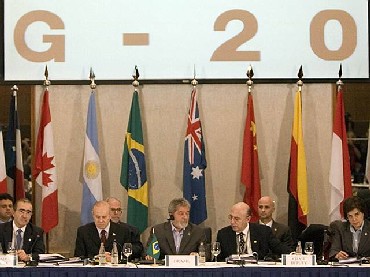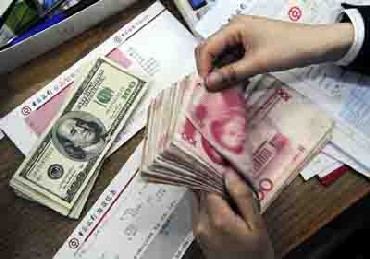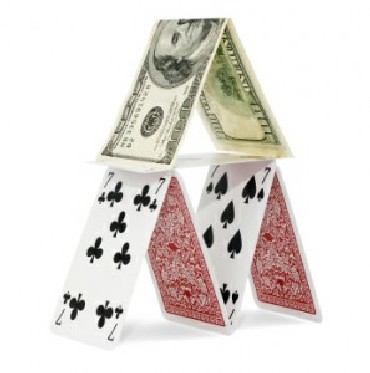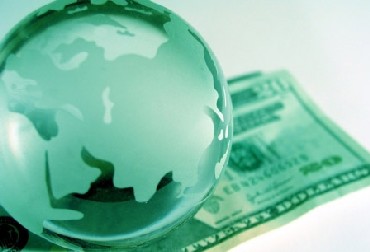 | « Back to article | Print this article |
What G20 did not learn
It will probably take another crisis for the global economy to realise it is important to manage exchange rates, and not leave it to the markets.
The imminence of a crisis does wonders to help concentrate minds. This time, there was no such backdrop and, naturally, little could have been expected in any case.
The Financial Times' post-summit editorial headline was "G20 show how not to run the world". This may be overstating the case, as there are some positive outcomes:
- The threat of a trade war has been averted.
- The dispute over China's exchange rate policy has been papered over, if only for the time being.
Click NEXT to read more...
What G20 did not learn
Yes, the last five G20 summits have succeeded in avoiding the mistakes of the 1930s.
In fact, the most imaginative proposal advanced before the meeting came from Timothy Geithner, the US treasury secretary.
It involved getting the G20 to agree on limits (unstated, but said to be 4 per cent of gross domestic product) on current account surpluses and deficits.
This implies that governments would be expected to take macroeconomic steps to curb imbalances, should they exceed the limit. Though in my view 4 per cent is too high, the principle has some interesting implications, and I am not sure if Geithner has thought them through.
On the issue of exchange rates, the summit reiterated the wording agreed in the meeting of the G20 finance ministers and central bank governors a few weeks earlier - a commitment to "moving toward more market-determined exchange rate systems, enhancing exchange rate flexibility to reflect underlying economic fundamentals, and refraining from competitive devaluation of currencies.
Advanced economies, including those with reserve currencies, will be vigilant against excess volatility and disorderly movements in exchange rates".
Click NEXT to read more...
What G20 did not learn
I had criticised the ill-logic (or should we say "spin"?) in the statement in an earlier article ("Underlying contradiction", November 1).
The summit has compounded the confusing implications by admitting in the accompanying Seoul Summit Document that "The global financial system came to a sudden halt in 2008 as a result of reckless and irresponsible risk taking by banks and other financial institutions, combined with major failures of regulation and supervision."
The "failures of regulation and supervision" occurred precisely because of a quasi-religious faith, particularly in the Anglo-Saxon regulators, in the efficiency of markets in producing prices that reflect fundamentals.
This implies that any regulatory interference in the market is inherently distorting and thus undesirable. As it happened, this belief was completely mistaken; credit risk was grossly mis-priced by "reckless and irresponsible" banks and their traders.
And, they are the very ones who dominate the currency market (it trades 100 times more than the underlying cross-border trade in goods and services) and make huge profits from it.
Click NEXT to read more...
What G20 did not learn
Given this, it is difficult to understand our political masters' faith in "more market-determined exchange rate systems".
In any case, if the market-determined external value is to be preferred, by the same logic, why not leave the currency's internal value (that is, inflation rate) also to the market?
Why does the central bank "manipulate" it? After all, markets are self-correcting, are they not? If prices go too high, people will stop buying, some may die because they cannot afford to buy food, all of which will bring down the demand, and hence the prices, curing inflation.
Surely, in a globalised economy, the external value of a currency is as important as its domestic value to sustainable output, growth and jobs?
To come back to the question of current account imbalances, the summit communiqu says, "We will strengthen multilateral cooperation to promote external sustainability and pursue the full range of policies conducive to reducing excessive imbalances and maintaining current account imbalances at sustainable levels."
Click NEXT to read more...
What G20 did not learn
Elaborating on "the full range of policies", in a speech in Lisbon, US President Barack Obama said, "Countries with big surpluses have to figure out how they can expand demand...
Countries with significant deficits, we have to save more and focus not only on consumption, but also on production and exports the currency issue plays into this and there's going to be an ongoing debate on making sure that surplus countries are not artificially devaluing their currencies in a way that inhibits not only our growth but world economic growth" (The Economic Times, November 22).
As for production and exports, surely the economics is crucially dependent on the exchange rate? Again, the tone and content of the statement suggest that it is all right for governments to "manipulate" demand, savings and so on.
Click NEXT to read more...
What G20 did not learn
After all, these variables directly affect only the real economy; but managing exchange rates in order to curb imbalances is, of course, sacrilege - because such an action would directly affect that holy of holies, the financial markets. Strange logic!
The hypotheses that external imbalances are a function only of savings and investment, that these variables and the competitiveness of the economy are independent of the exchange rate so long as it is "fully market-determined" are completely misplaced.
The global economy perhaps needs another crisis to understand that the way to reduce imbalances is to manage the exchange rates; and that, given the "impossible trinity"; this will require controls on capital movements.






